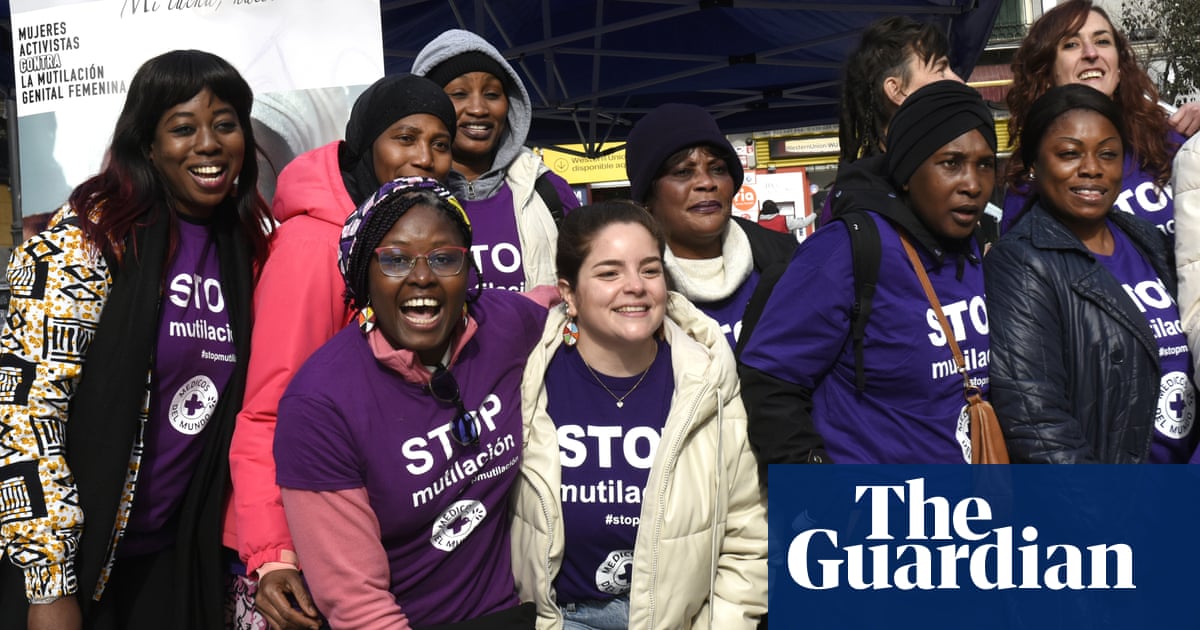
Survivors of female genital mutilation in Africa will spearhead a two-year “caravan campaign” throughout the continent, advocating for the discontinuation of the practice.
A team of grassroots advocates and organizations in Africa, known as #FrontlineEndingFGM, will travel through 20 countries, including Nigeria, Sudan, and Cameroon, covering a distance of approximately 7,400 miles (12,000km).
Individuals advocating for change, healthcare experts, and spiritual figures from regions with high instances of FGM will organize a sequence of gatherings and radio programs specifically addressing the unique obstacles in eliminating this harmful practice. At the border of each nation, the caravans will pass on a banner denouncing FGM and a pledge book titled “Dear Daughter,” where families pledge to safeguard their daughters from undergoing the procedure, to the following convoy.
Ayo Bello-Awodoyin, leader of the Global Media Campaign to end FGM in Nigeria, stated that the power is being transferred. Grassroots activists, who have been working towards this cause without sufficient support, will now have the chance to unite and take action on a larger scale across various countries.
The initiative, sparked by the “pink bus” movement against FGM that originated in the Gambia almost ten years ago, is set to launch in Mauritania in June and continue until mid-2026, concluding in Djibouti.
The prevalence of FGM in Africa has decreased in the last 30 years, with some countries experiencing a more rapid decline than others. Kenya, Burkina Faso, Togo, and Liberia have seen a significant decrease, while the Gambia, Somalia, Mali, and Guinea still have high levels of support for the practice. In Sierra Leone, FGM is still legal despite calls for a ban, especially after three girls died during a ritual in January. While many African nations have laws against FGM, activists argue that inadequate enforcement allows the practice to continue.
“The primary concern is the efficacy of laws. When we declare FGM as a punishable crime but fail to prosecute, it presents a significant obstacle,” stated Bello-Awodoyin.
According to activists, in order to eliminate the practice of FGM, which is often linked to cultural and religious traditions, tailored advocacy is necessary for each specific region where it is common. In Somalia, for example, where 98% of women have experienced FGM, the belief that it is a religious obligation is hindering efforts to end it, as reported by human rights organizations.
According to Ifrah Ahmed, a survivor of FGM and founder of the Ifrah foundation, hearing a religious leader acknowledge that FGM is a cultural rather than religious practice will greatly impact the community. The foundation works towards abolishing cutting.
Activists will utilize the caravan to engage and organize communities in remote locations, such as camps for those displaced within their own country. Through screenings of documentaries, they will raise awareness about the negative health consequences of female genital mutilation (FGM), including complications during childbirth, menstruation, sexual health, and psychological well-being.
According to Ahmed, individuals may have a different reaction when they personally view these documentaries. Simply informing them about the deaths of young girls from FGM is not the same as them witnessing it.
According to the Global Media Campaign, a project led by religious leaders in the Tana River region of southern Kenya successfully decreased the occurrence of the most severe type of FGM by 84% through a three-year radio campaign. Activists believe that these campaigns are an effective method for reaching communities. The organisation is optimistic that their upcoming caravan will revitalize anti-FGM advocacy throughout the continent, as there are ongoing challenges such as the rise of medicalized FGM in the Horn of Africa and underground practices that could reverse progress.
Bello-Awodoyin stated that she hopes individuals will understand the damaging effects of FGM and that those who have experienced it and leaders of local organizations will continue to advocate against it.
Source: theguardian.com

















